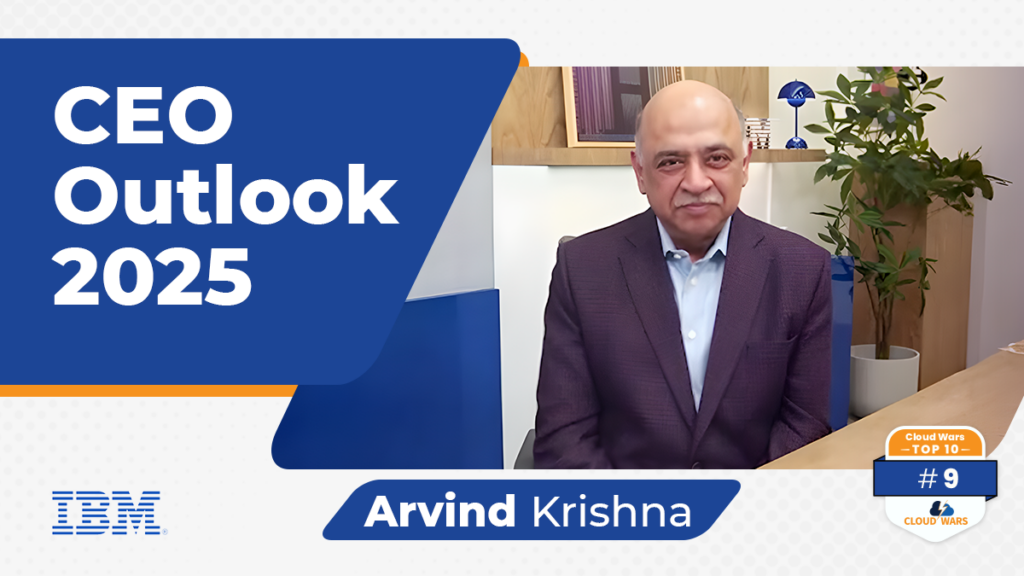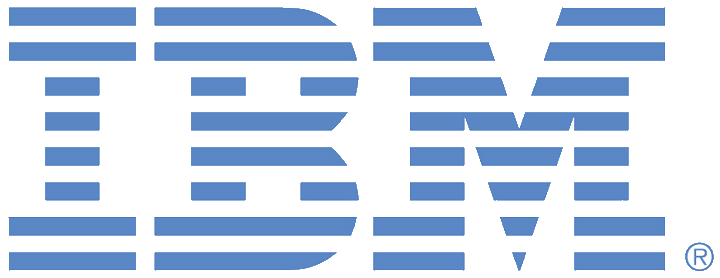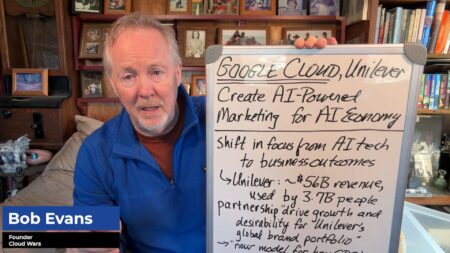
Ongoing and widespread uncertainty and disruption across the globe are combining to create a “larger appetite for technology” that will continue to build among governments and corporations for the next 10 years or more, IBM CEO Arvind Krishna told me in a recent conversation (you can see the full interview here).
Several years ago, IBM’s lackluster results and floundering market position made it reasonable to wonder if the 114-year-old icon would even make it into that uncertain future. But since becoming CEO five years ago, Krishna has engineered a remarkable turnaround in IBM’s culture, portfolio, personnel, and prospects that has ensured it will be a key player in everything from the AI Revolution to the cloud to data, security, unprecedented partnerships, and business-transformation consulting and services.
And after those five years of heavy — and often very heavy — lifting, it’s no wonder Krisnha’s bullish about the prospects for IBM and its clients.
“To begin with, I’m probably more of an optimist than a pessimist — that’s part of my nature,” Krishna said during a recent interview for the annual Cloud Wars CEO Outlook 2025 series. (You can see the entire interview here.)
“But let’s acknowledge the headwinds you named: geopolitics, interest rates, inflation, supply chains,” Krishna said, noting that the recent United States presidential election has removed a very large variable.
“Now, in western Europe, France and Germany are going through their perturbations. All that said, what it creates is a larger appetite for technology. So around the world, including in Europe, we are seeing a larger appetite to leverage technology to help transform the way companies and governments do business and interact with their citizens,” Krishna said.
“I believe this is a secular trend that will go on for at least another decade, maybe longer now, and it’s fueled by what these technologies can do, whether it’s automation or AI or cloud or the hybrid nature of these workloads or sovereignty. People believe that in the face of all those headwinds, technology offers a way forward to deliver better service at lower cost to all of the clients and constituents they care about.
“That, I think, is why this is such an exciting time in the technology business.”
Focusing and Delighting
When I asked Krishna to talk about the ways in which IBM has changed — particularly in its culture — in order to keep up with and perhaps even get ahead of the relentless challenges its customers are facing, two words popped up repeatedly: focus and delight.
“I believe it’s kind of simple when you say it like this: why does IBM exist? Well, we exist to serve clients. So that means everybody’s focus should be on delighting a client in every interaction. Delight them with how technology is deployed,” he said.
“Look, software does occasionally fail — so delight them when that happens in terms of getting them up and running really quickly.
“And what does that create? It creates a culture where you’re really focused on the success for the client — and as they begin to really experience that and believe that, they tend to trust you and want to work more with you.
“The second thing is to focus on providing value. There isn’t any value for a client in signing a technology invoice because that’s just the beginning of the journey. The value lies when they actually get it deployed and they’re receiving value, and their business improves — so go focus on making that happen.”
As an extension of that mindset, I believe that one of the biggest impacts that Krishna has had on IBM has been on his insistence that the company get out of the business of fulfilling orders and perfecting its past and become intimately involved in helping IBM customers create their own futures.
“I encourage people to take more risks. We are an existing company — we’re not brand new, so we have a footprint with many, many clients. Not taking risk means, ‘Let’s go in and just talk about renewing what we have.’ But taking risk means that we go to the client with a bold proposition that may save them money, or that may be a better way to do things. This new approach may take something away from our current footprint, but it may give the client a much better way to go forward.”
For anyone who’s worked with or followed IBM for a while, that’s a stunning shift in perspective. By reorganizing the company’s byzantine organizational structure around client outcomes rather than internal revenue goals, the new IBM under Krishna is eager to leverage its massive stores of technology expertise plus business-process and industry expertise to help those customers transform into what they need to become in the very different future, rather than just becoming a more efficient version of their current selves.
“But that also means, though, that there’s risk on the individual side: who does that? That means we have to learn new ways to do things. And as you take more risk, you’re going to be much more innovative. How about trying to get things done in half the time? I don’t mean by cutting corners — I mean by cutting out the bureaucracy and unnecessary processes that get in the way of doing things, whether in the world of marketing and getting in front of clients, or the R&D side, or how you do partnerships.”
The shift IBM has made from competing with everyone — and in many cases, doing so without much success — to embracing high-value partnerships with former and/or current competitors is another powerful strategic transformation Krishna has engineered. And with several billion-dollar partnerships with Cloud Wars Top 10 companies that were bitter rivals just a few years ago, IBM is able to surface more of those opportunities to delight and take risks that Krishna described earlier.
“I really believe that inside the company, it’s not a zero-sum game, meaning how we partner is not okay if the outcome is they win, but we lose. Instead, can we expand the pie, in which case we both win? Because then the client is happier,” Krishna said.
But as is the case with everything going on across this iconic company whose 2024 revenue should top $60 billion, the cultural overhaul is a work in progress.
“And I’ll be candid: I think we’re on the journey. You’re never at the end of this journey, because making cultural change is is a decade long task.”
Becoming a Software Powerhouse
For its Q3 ended Oct. 31, IBM said that software now accounts for 45% of total revenue. When I asked Krishna about the significance to customers of the company’s massive shift toward software, he good-naturedly joked about stealing a little thunder from venture capitalist Marc Andreessen.
“So we were about little over 20% software about five years ago, and now our revenue is almost half software,” Krishna said.
“I think it was Marc Andreessen, who’s very well read by a lot of people, who said, ‘Software is going to eat the world.’ And if I remember right, I actually believe that deep in my heart–and by the way I’ll make fun of Marc just a little bit,” Krishna said with a laugh — “I probably believed that when he was still in diapers and I was already in college.”
The magic of software, and Krishna’s motivation for pushing IBM away from its “big iron” roots and more deeply into software, is that it is “flexible, meaning you can refresh it, you can upgrade it, you don’t have to change all of it, unlike most other technologies, where it’s a complete change when you do things,” Krishna said.
“For clients, the value lies in software,” particularly here in the early days of the AI Revolution.
“We can come to our clients and say, ‘Look, we can help you automate these tasks. We can help you integrate across these technologies. We can help you get more insights from your data.’ So that is kind of where I think IBM secret sauce kind of lies, and having put a very tight focus back in those we kind of have our lanes of automation, hybrid cloud, data and AI, and that has allowed us to expand the market share and the growth rates.”
Krishna on AI; and, R&D as Growth Engine
In our 30-minute conversation, Krishna also touched on IBM’s aggressive position on helping clients build out their AI plans and be able to consume AI services more simply; the company’s reorientation of its storied R&D organization; and its rapidly growing and highly innovative partnership strategy. To hear Krishna’s perspectives on those topics first-hand, please check out the full video interview here.

AI Agent & Copilot Summit is an AI-first event to define opportunities, impact, and outcomes with Microsoft Copilot and agents. Building on its 2025 success, the 2026 event takes place March 17-19 in San Diego. Get more details.









